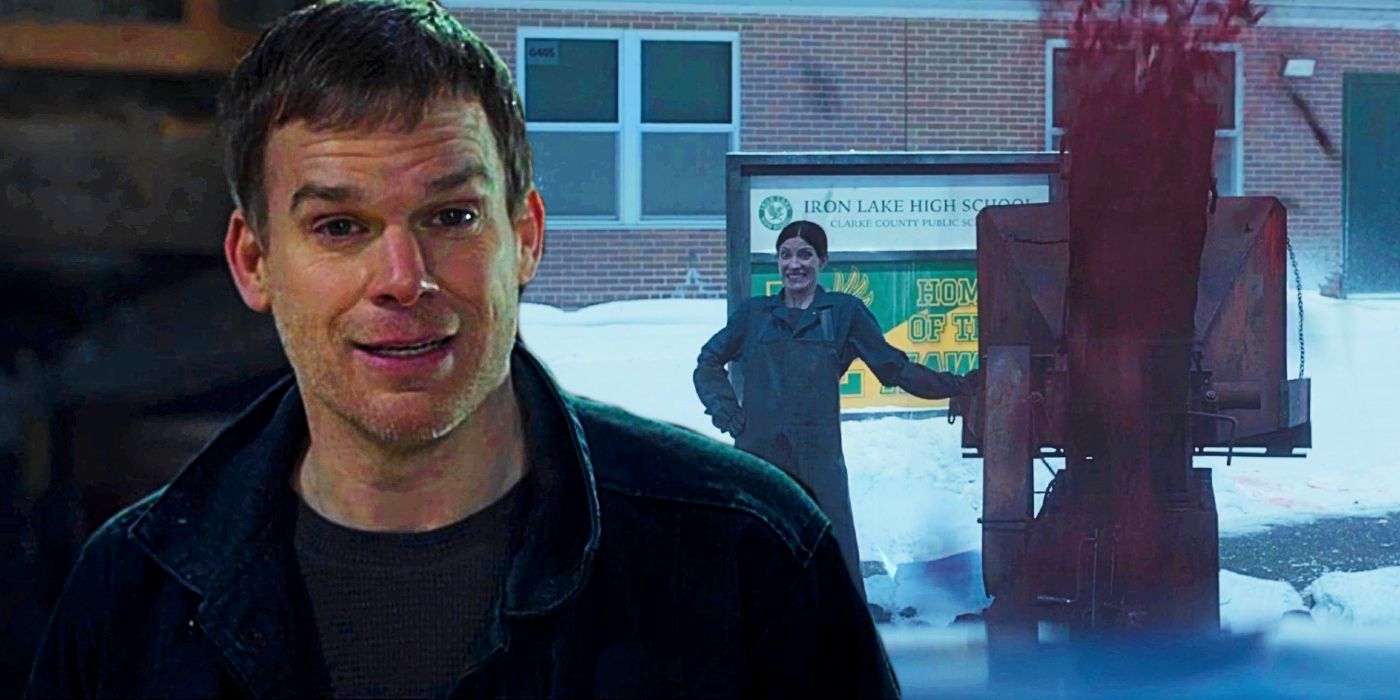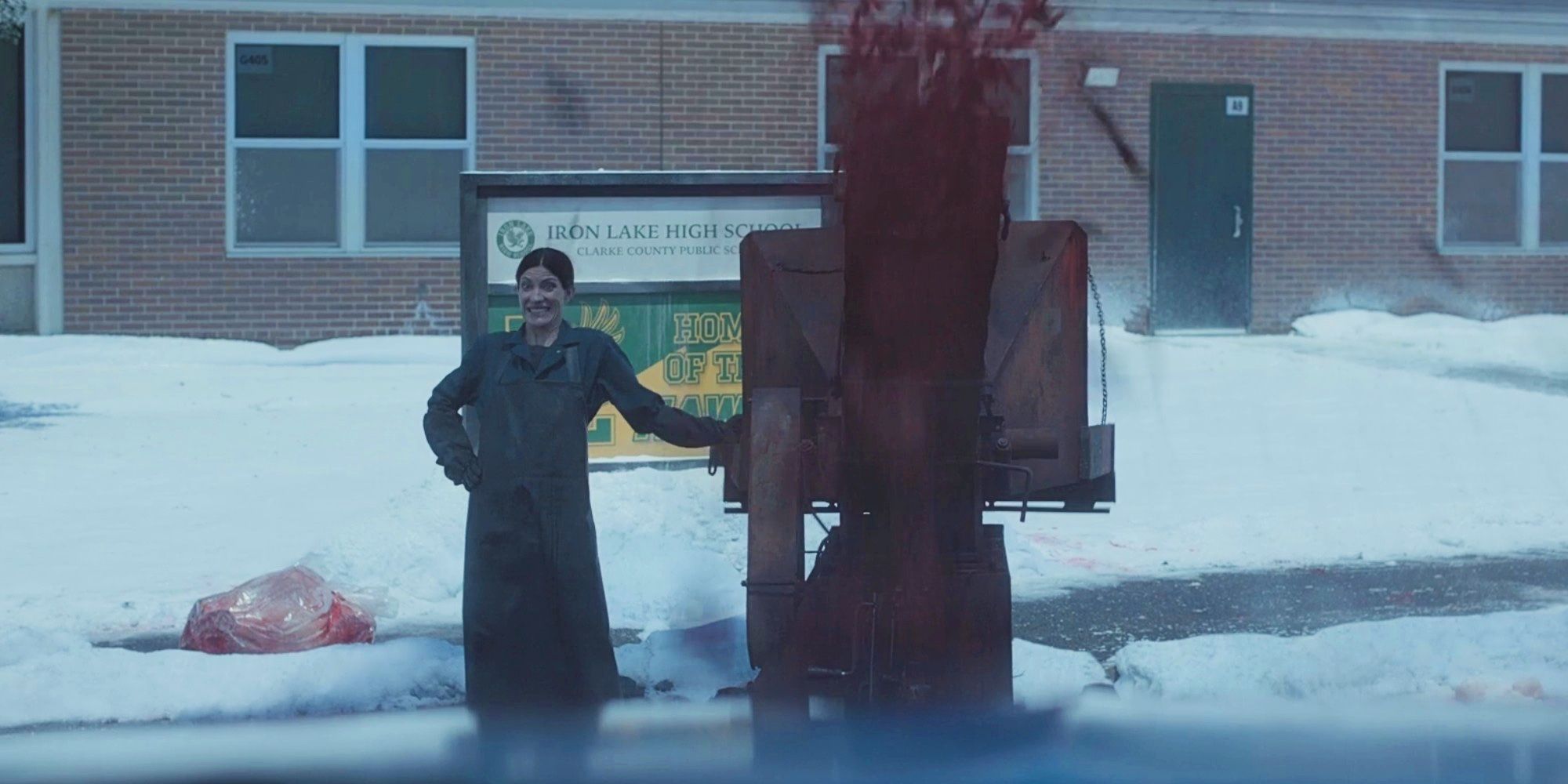Warning: SPOILERS ahead for Dexter: New Blood.
While Dexter’s original series was full of dark, profane, or sexual humor on behalf of its main characters, comedy is one area that most evidently separates New Blood from the first 8 seasons. New Blood hardly features humorous moments, but when it does, they don’t have the same effect as the original series. The comedy in Showtime’s reboot is typically confined to Iron Lake policeman Teddy being inexperienced, receptionist Esther being a gossip, Molly Park’s podcasting persona, or dark, cartoonish moments like Deb’s Dark Passenger reenacting Fargo’s woodchipper scene.
Right off the bat, Dexter: New Blood has made a point to distance itself from the mood and aesthetic of the original series. The most obvious departure from Dexter seasons 1-8 was the setting, which takes Dexter Morgan from the heat and dynamic excitement of Miami to the freezing cold tedium of isolated small-town life in Iron Lake. New Blood also makes Dexter far more human than the original series, having him wear his emotions on his sleeve while alone with Deb and his thoughts, which contributes to his lack of humor when left alone with the ramifications of his past. Dexter: New Blood's series establishes itself as first and foremost a drama, taking a discernable departure from the original show’s frequent black comedy.
Dexter: New Blood has tried its infrequent hand at humor, but the reboot series is far too morose and sullen in tone to properly accomplish this. In very few moments does the show’s humor work, such as Dexter sarcastically saying “dogs barking at me… still got it” in New Blood episode 5. While this remark calls back to the enjoyable humor of the stoic serial killer from the original series, it just goes to prove how tonally unsuited such quips are in New Blood compared to Dexter. Showtime’s reboot is cold, calculated, and upsetting in its themes - a stark departure from the oxymoronic warmth and frequent dark humor of Dexter’s life in Miami. This is all purposeful, bringing audiences into the more isolated and depressing nature of Dexter’s life and conscience in the decade since the original series finale. Dexter: New Blood's lack of successful humor doesn't make it any worse of a series, it just doesn't fit with the reboot's established tone.
Dark and immature humor were integral to the character dynamics of Dexter’s original series, typically coming from Deb’s excessive profanity, Masuka’s sexualization of anything and everything, Batista’s often unsuccessful flirtations, and Dexter’s own black comedy in his voiceovers. Amongst all of the gore, death, and anti-hero darkness of Dexter’s original series, it always maintained a level of joy and humor through its characters. This is clearly not the case for New Blood, which is dealing with the emotionally frustrating ramifications of Dexter faking his death and abandoning his son, Harrison developing his own Dark Passenger, and frequent reminders of the most tragic events of the original series like Deb’s death.
As the stakes get higher for Dexter and Harrison in New Blood, the infrequent humor becomes increasingly out of place. While most of the original series was able to properly integrate the dark humor with Dexter’s life-threatening schemes, New Blood makes it more difficult with how stern and serious both the adult and teen characters are. In Dexter, the workplace drama aspect was full of comedic relief, with hardly any of the main characters taking their law enforcement or forensic roles too seriously. Even when they did, like James Doakes, Dexter still integrated iconically comedic lines such as Doakes confronting Dexter with "Suprise, Motherf***er." In New Blood, Dexter doesn’t really have the time or patience for such humor, especially since he has to keep everyone at arm’s length to avoid them discovering his true identity and protect his son at all costs.


